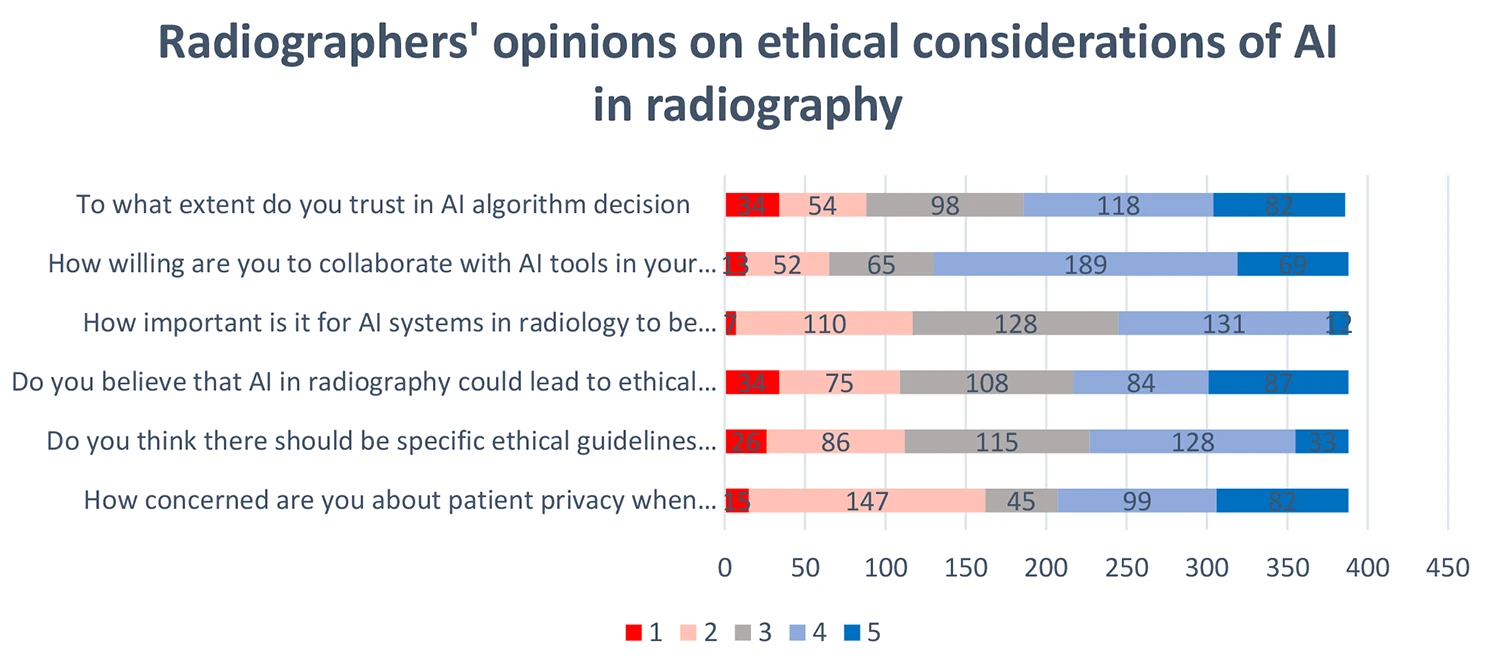The integration of artificial intelligence (AI) into radiography has brought significant advancements in diagnostic capabilities and workflow efficiency, but it also presents ethical challenges. Radiographers play a crucial role in this integration, and understanding their perspectives on AI ethics is vital. Ethical considerations include patient confidentiality, bias in algorithms, accountability, and transparency. Despite the importance of AI in radiography, few studies have explored its ethical dimensions from the perspective of radiographers. Therefore, a recent study published in BMC Medical Ethics aimed to fill this gap by investigating radiographers’ views on AI ethics to inform the development of guidelines and policies for its responsible use in radiographic practice.
Methodological Framework: A Cross-Sectional Study on Radiographers' Views
The study, approved by the Local Research Ethics Committee of Health Affairs, Hafr Albatin, utilised a cross-sectional research design to gather data on radiographers’ views on the ethical dimensions of AI in radiography. A survey was employed, comprising demographic questions, inquiries about AI knowledge, and the impact of ethical considerations on professional practice. The survey underwent pilot testing for validity and reliability, incorporating feedback from radiographers and faculty members. Conducted online via Google Forms, the survey ensured participant anonymity and voluntary participation. It included closed-ended questions for quantitative analysis and open-ended questions for qualitative insights. The survey ran for 12 weeks, starting from August 2, 2023, distributed via email and social media platforms.

Image Source: BMC Medical Ethics
The study included 388 respondents, of whom 269 (72.2%) respondents were men and 119 (27.8%) respondents were women. Most participants were 33–43 years old. The number of years of experience as radiographers was 17 ± 4 years (expressed as the average ± standard deviation) with a range of 5–25 years. A substantial number (44.8%) of the participants reported that they were unfamiliar with the integration of AI in radiography, whereas 32.4% of participants indicated a moderate level of familiarity. A small proportion (22.8%) reported being familiar or very familiar with AI in radiography.
Varying Levels of Familiarity, Trust and Preparedness
Findings highlighted diverse perspectives among radiographers regarding AI, reflecting varying levels of familiarity, trust, and preparedness. While some radiographers demonstrated enthusiasm for AI's potential to enhance diagnostics and workflow efficiency, others expressed reservations, fearing job displacement and emphasising the need for additional training. The study also emphasised the importance of addressing ethical considerations, such as patient privacy, bias in algorithms, and transparency, in AI integration.
Radiographers' Crucial Role in Ethical AI Integration
Radiographers play a critical role in shaping the ethical dimensions of AI integration, and their insights are vital for informing guidelines and policies for responsible AI use. The study underscores the significance of ongoing professional development to equip radiographers with the skills needed to navigate ethical challenges in the evolving AI landscape. Transparent communication and collaboration are essential for building trust in AI systems and ensuring their ethical implementation.
The study acknowledges certain limitations, including reliance on self-reported data and potential selection bias in the sample. Nonetheless, it provides valuable insights into the ethical considerations surrounding AI in radiography and emphasises the need for continued discussion and updating of guidelines to effectively address ethical and legal challenges in AI integration.
Source: BMC Medical Ethics
Image Credit: iStock







